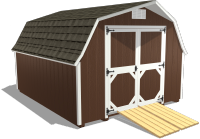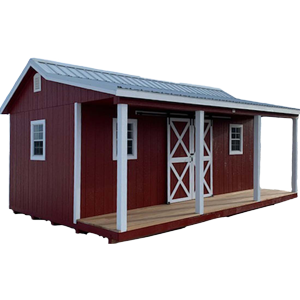The Perfect Pairing: Creating a Coop and Run for Your Chickens
by Dakota Storage Buildings, on November 06, 2023
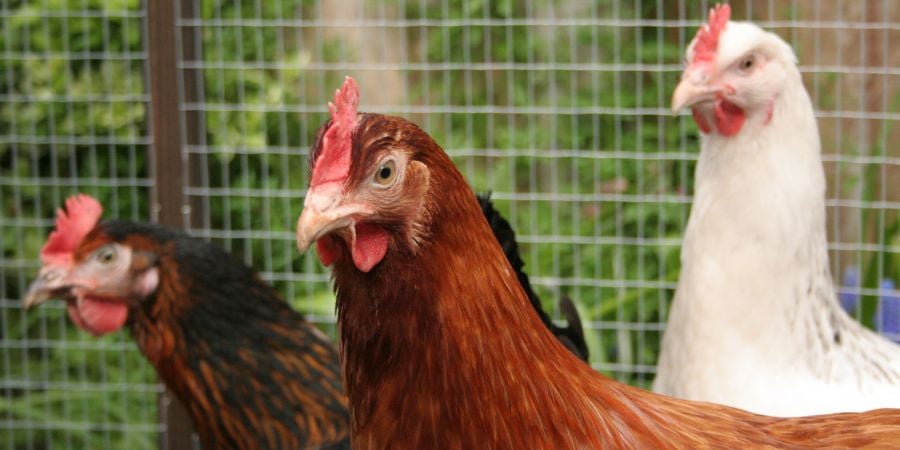
There is something wonderfully satisfying about collecting fresh eggs in the morning and watching your flock frolic in the grass. Raising chickens brings an authentic slice of farm life right into your homestead. But before you decide to get a chicken, you must answer a critical question: "How do I create the perfect home for my chickens?" Your flock will need more than just a patch of grass to call home. They will need shelter, protection, and a stimulating environment. A chicken coop and run provides your birds with a safe and comfortable living space and ensures they remain healthy, happy, and productive. But how do you choose the right coop and run that suits both your needs and those of your chickens? We are here to help you navigate through every step of raising chickens, ensuring that you are well-prepared to create a chicken paradise right in your own backyard.
Don't Wing It Alone: The Value of the Chicken-keeping Community
Raising chickens may seem straightforward, but as you dive deeper, you will realize there is a wealth of knowledge to be acquired. The learning curve can be steep, from selecting the right breed to treating a sick chicken. Thankfully, you do not have to tread this path alone. The backyard chicken community is a thriving, vibrant group of people who share your passion and have a wealth of experience to share. Joining this community can save you time, money, and needless worry. While books and articles provide valuable information, they can not replace the tailored advice from community interaction.
Social Media
Platforms like Facebook and Instagram are not just for sharing cute chicken pictures (although you will see plenty of those!). These platforms host numerous groups where you can ask questions, share your own insights, and even trade or purchase supplies. Search for terms like "backyard chickens," "homestead poultry," and "urban chicken farming" to find groups that suit your specific needs.
Websites
The Internet has countless websites and forums where you can dive deep into the nitty-gritty of raising chickens. You can find exhaustive articles, discussion boards, and reviews on poultry products. You will find answers to questions you did not even know you had!
Poultry Clubs
If you are the kind of person who enjoys face-to-face interactions and real-world networking, poultry clubs might be the right avenue for you. These clubs often hold monthly meetings, workshops, and even annual fairs where you can showcase your birds. It is also an excellent opportunity to meet local experts and vets who can provide firsthand advice tailored to your regional challenges, like climate considerations for coop and run construction.
Choosing the Right Breed of Chickens
There are countless breeds available, each with its own unique characteristics, temperaments, and care requirements. Selecting a breed that aligns with your goals and lifestyle will make your chicken-raising experience more rewarding. What's the primary reason you are interested in raising chickens? Is it for egg production, meat, or perhaps just as pets? Some breeds, like the White Leghorn, excel in laying eggs, while others, such as the Cornish Cross, are best for meat. Dual-purpose breeds like Plymouth Rocks or Orpingtons offer a balanced approach. Believe it or not, different breeds lay different colored eggs! Depending on if you want classic white or brown will narrow down your breed search. If you have children or you are looking for the best birds for beginners, consider a breed known for its friendly disposition. Breeds like Silkies and Cochins are generally more submissive and easier to handle. On the other hand, some breeds are more aloof or aggressive and may not be suitable for families with young kids.
From Chicks to Hens: How to Choose and Where to Shop
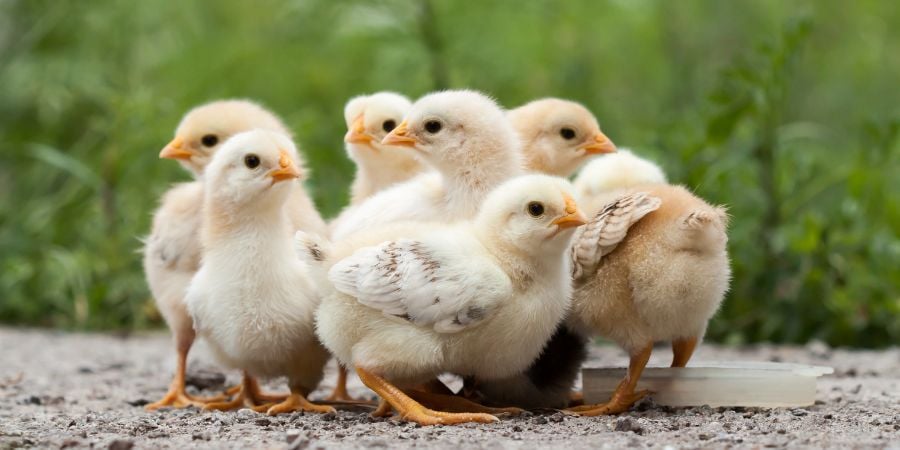
While buying your backyard chickens is an exciting milestone, it is crucial to approach it with the same care and consideration you have given the earlier stages. Where you buy your chickens and the age you choose can significantly impact your flock's health and overall experience.
What Age is Best for You?
Chicks
One option is to start with day-old chicks. Watching these tiny fluffy birds grow into full-fledged chickens is immensely rewarding but also time-consuming. Chicks require a controlled environment, think heat lamps and round-the-clock attention, and are vulnerable to various illnesses. However, raising chicks ensures they are well-adapted to your specific environment.
Pullets
Pullets, or juvenile hens aged between four to six months, are an excellent middle-ground choice. They are more robust and less susceptible to disease compared to chicks but have not yet started laying. This gives you a grace period to get your coop and run in order before the eggs start coming.
Adult Chickens
Fully-grown chickens, often around a year old, are typically already laying and have well-established temperaments and habits. However, adults might be less adaptable to new environments and can sometimes carry diseases from their previous settings.
Where to Buy Your Chickens
Local Farmers
Buying from a local farmer can be one of the most rewarding ways to get your flock started. You get the benefit of the farmer's experience and can often see firsthand the environment in which your future chickens have been raised. This option allows you to ask questions and even potentially return for advice down the line.
Hatcheries
Hatcheries are an excellent option for those with a particular breed in mind that is not readily available locally. These facilities offer a wide variety of breeds, often with health guarantees.
Farm Supply Stores
Places like Tractor Supply or local feed stores often have "Chick Days," where they sell various breeds at different ages. While you may not get the same level of expertise as you would from a dedicated farmer or hatchery, these stores offer convenience and a range of options.
Choosing the Ideal Coop and Run
Creating the perfect home for your feathered friends is about more than just choosing the right breed and age of your chickens. A well-designed coop and run are equally crucial for the health and happiness of your flock. These structures provide shelter and security and play a pivotal role in your chickens' daily lives. The chicken coop is essentially the "indoor" space where your chickens will spend their nights and lay their eggs. It should be weatherproof and secure, offering protection from predators and the elements. Inside, you will need nesting boxes for egg-laying and roosting bars for sleeping. Think of the chicken run as a secure outdoor playground for your flock. It is a fenced-in area — usually adjacent to the coop — that allows your birds to forage, scratch, and enjoy the sunshine while protected from predators. It is an integral part of the coop and run pairing that should not be overlooked.
Chickens require both a coop and a run for a balanced life. The coop provides a safe, dark place for laying eggs and sleeping, while the run offers much-needed space for exercise and natural behaviors like dust-bathing and foraging. The space you allocate for the coop and run depends on the number of birds you plan to keep and their size. A general rule is to provide at least 2-4 square feet per chicken inside the coop and about 8-10 square feet per chicken in the run. Both the coop and the run should be fortified against predators. Locks, predator-proof latches, and even motion-activated lights can enhance security. Consider a covered top for the run to protect against aerial predators like hawks.
Benefits of Free-range and Enclosed Chicken Settings
Now, there is another decision: will you let your chickens free-range, or will they be confined to the enclosed run? Both options have distinct advantages and drawbacks, depending on your specific needs, the size of your property, and the predators native to your area.
Free-range Advantages
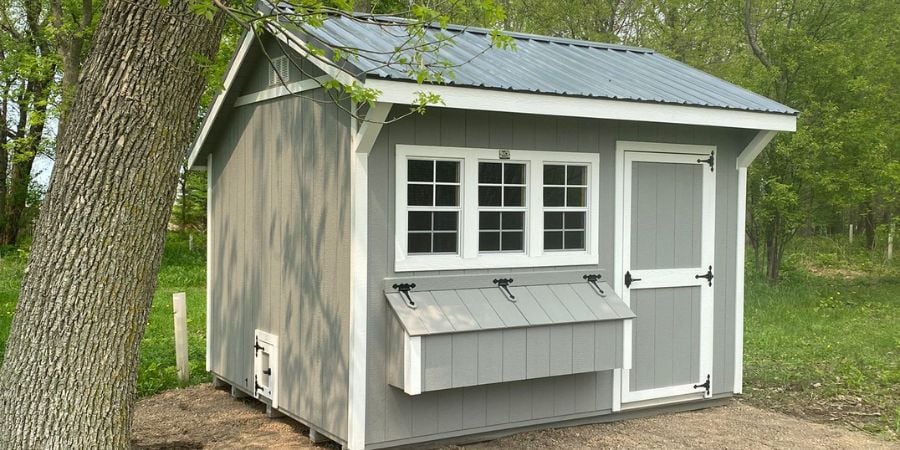
Natural Behavior: Chickens were born to scratch, forage, and explore. A free-range setting allows chickens to indulge in these natural behaviors, contributing to their mental well-being.
Diet Diversity: A greater variety of natural foods from foraging enriches your chickens' diet and makes for tastier and potentially more nutritious eggs. Chickens may consume more insects, seeds, and wild plants, adding different nutrients to their eggs and meat.
Pest Control: Chickens are nature's little exterminators. They will happily snack on ticks, fleas, and even small rodents, helping to keep your property pest-free.
Physical Health: More space to roam generally means more exercise and more exercise typically results in healthier chickens. Plus, the additional sunlight they will receive can enhance Vitamin D synthesis, which is beneficial for egg-laying hens.
Enclosed Advantages
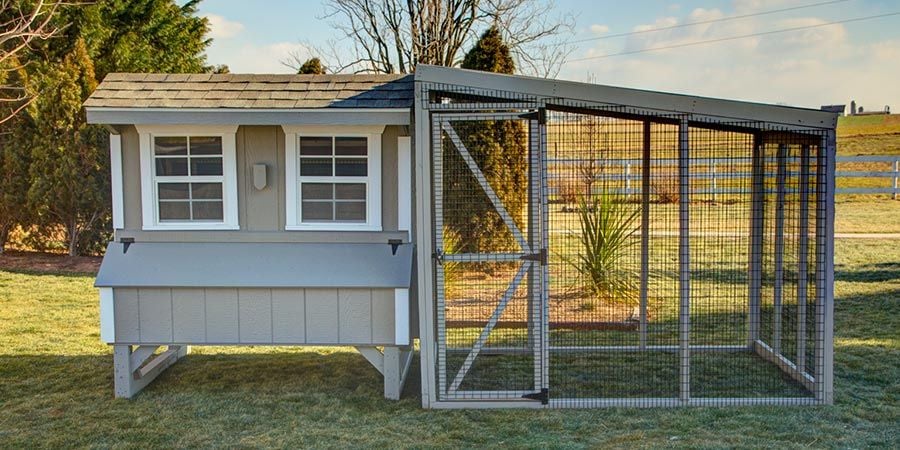
Security: Enclosed runs offer a controlled environment, which makes it easier to protect your chickens from predators. Enhanced features like double fencing, buried wire, and covered tops can be added for extra security.
Controlled Diet: An enclosed space makes it easier to monitor and control your chickens' eating. This can be particularly important if you are looking to maximize egg production or control the nutritional content of the eggs.
Easier Management: Having a fixed, enclosed space simplifies many aspects of chicken care, from feeding to cleaning. Plus, you always know where your chickens are, which is particularly useful for regular health checks and headcounts.
A Beginner's Guide to Raising Chickens Successfully
The journey towards raising chickens in your backyard is not just about acquiring the birds; it is also about creating an environment where they can thrive. From the community you join for support to the breed of chicken that suits your lifestyle, and from where to buy your first flock to the type of coop and run you choose, each decision contributes to the overall well-being of your chickens — and, by extension, to your success and satisfaction as a chicken keeper.
As a beginner, you do not have to figure it all out simultaneously. You likely will not. Most long-time chicken keepers will tell you they're still learning and adapting. Each day brings new challenges and new joys, and that is part of what makes raising chickens so fulfilling. To help you further along your journey, consider downloading our free guide, “The Beginner's Guide to Raising Backyard Chickens.” This comprehensive resource will provide you with even more insights, tips, and tricks to set you on the path to success.





